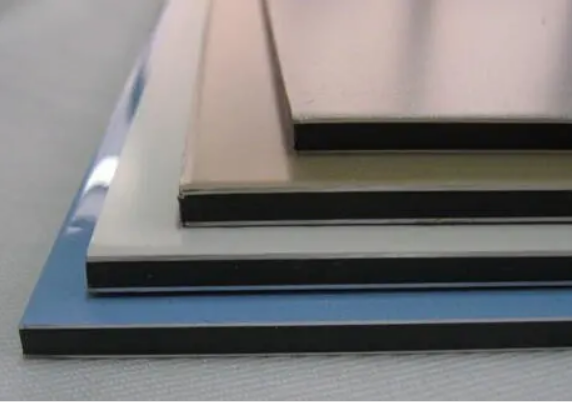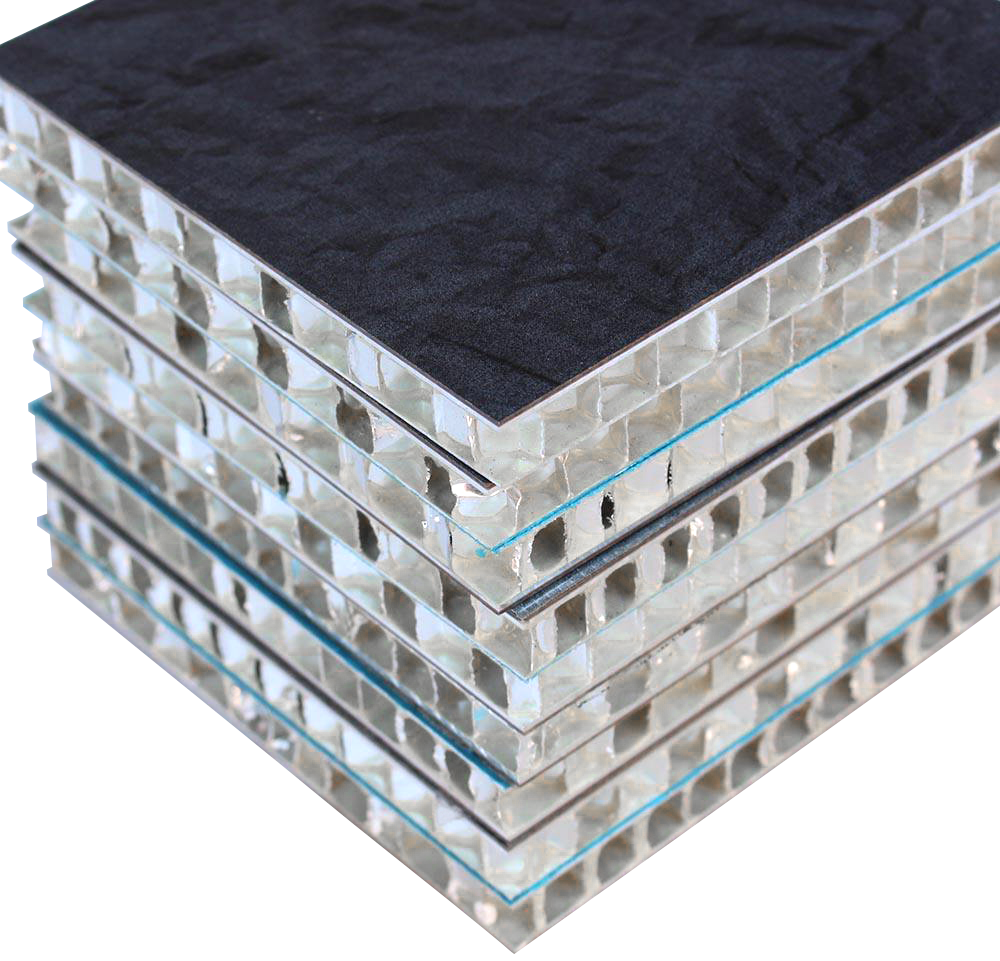Views: 0 Author: Site Editor Publish Time: 2025-06-06 Origin: Site








Aluminium Composite Panels (ACP) have gained immense popularity in construction, architecture, and interior design due to their durability, lightweight nature, and aesthetic versatility. Whether you're building a modern skyscraper, revamping your home, or installing signage, ACPs are an attractive option to consider. But what makes ACP a good material choice? In this article, we will dive into the characteristics of aluminium composite panels, their benefits, and why they may be a smart investment for your next project.
H2: Understanding Aluminium Composite Panels
What Is an ACP?:
An Aluminium Composite Panel (ACP) is a modern construction material composed of two thin layers of aluminum enclosing a non-aluminum core, typically made of polyethylene or other materials. This three-layer sandwich structure offers superior durability while keeping the material lightweight.

How Are ACPs Made?:
The manufacturing process involves bonding two aluminum sheets to a core material, using heat and pressure to form a single cohesive panel. The outer aluminum layer is usually coated with a protective finish to enhance durability and aesthetic appeal. This construction provides a high strength-to-weight ratio, making ACPs ideal for use in a variety of applications, from building facades to signage.
Why Choose ACPs Over Other Materials?:
Compared to traditional cladding materials like plywood, stainless steel, or solid aluminum, ACPs offer better strength, durability, and cost-effectiveness. They provide the perfect combination of aesthetic flexibility and structural integrity, making them a preferred choice for architects and designers.
H2: Why Aluminium Composite Panels Are a Good Choice
In addition to their aesthetic qualities, ACPs offer excellent thermal and acoustic insulation. The core material helps in maintaining the internal temperature of a building, reducing the need for excessive heating or cooling, and improving energy efficiency. This insulation also helps in soundproofing, making ACPs ideal for urban environments or areas with high noise levels.
ACPs are engineered to perform in extreme conditions. Their composition makes them resistant to damage from rain, wind, and intense sunlight, ensuring that the panels retain their appearance and function over time. The external layer’s protective coating also prevents corrosion, reducing the need for frequent maintenance or replacement. This makes ACPs a cost-effective and long-lasting investment for building projects in harsh climates.
ACPs come in a wide variety of finishes and colors, including solid tones, metallic shades, and textures that resemble natural materials like wood and marble. This versatility makes them highly suitable for architectural designs, giving architects and designers the freedom to create modern, unique, and visually striking facades. They are also ideal for both contemporary and traditional designs, adapting to various architectural styles.
One of the standout features of ACPs is their lightweight nature. Despite being much lighter than solid aluminum, ACPs maintain a high level of strength and impact resistance. This makes them easier to handle and install, reducing labor costs and installation time. Their strength allows them to withstand harsh weather conditions, making them an ideal option for both indoor and outdoor applications.
H3: Lightweight and Strong – Perfect for Modern Design
H3: Versatility in Design and Aesthetic Appeal
H3: Durability in Extreme Weather Conditions
H3: Energy-Efficiency and Insulation Properties
H2: Where Are Aluminium Composite Panels Used?
Aluminium composite panels are equally suited for commercial and residential buildings. They are commonly used for facades, exterior cladding, interior features, and even ceiling installations. Their versatility, combined with their insulation and durability properties, makes them ideal for a wide range of applications in both sectors.
ACPs are not only used in exterior applications but also in interior design. Their aesthetic flexibility allows them to be used for walls, room dividers, and decorative panels, bringing a modern look to any space. ACPs can be used to create unique designs, textures, and finishes, elevating the overall ambiance of both residential and commercial interiors.
The lightweight nature of ACPs and their ability to be easily printed on make them a top choice for commercial signage and advertising. ACPs can be easily customized with vibrant graphics and logos, making them perfect for storefronts, billboards, and directional signage. Their durability ensures that the signage remains visible and intact for extended periods, even in outdoor settings.
ACPs are widely used in the construction of ventilated facades, providing a sleek, modern exterior that enhances the building’s aesthetic appeal. They are ideal for creating dynamic designs and can be installed with ease, giving architects and builders flexibility in their projects. Moreover, ACPs can improve the energy efficiency of buildings by reducing heat absorption and promoting better insulation.
H3: Facade Cladding for Modern Buildings
H3: Signage and Advertising
H3: Interior Decoration and Room Dividers
H3: Commercial and Residential Use
H2: How Do Aluminium Composite Panels Compare to Other Materials?
Stainless steel and solid aluminum are other materials commonly used in cladding, but they come at a higher cost. While these metals are durable, they are also much heavier and harder to install. ACPs, on the other hand, offer a similar level of durability but are lighter, easier to handle, and more affordable. They also provide better insulation and require less maintenance compared to metal alternatives.
Plywood sheets are often used as an alternative to ACPs, but they don’t offer the same level of consistency in properties such as strength, elasticity, and resistance to water damage. Plywood tends to degrade over time when exposed to moisture, whereas ACPs remain unaffected by humidity and offer superior load-bearing capabilities. The longevity and durability of ACPs make them a better investment in the long term.

H3: ACP vs. Plywood
H3: ACP vs. Stainless Steel and Solid Aluminium
H2: Should You Use Aluminium Composite Panels for Your Next Project?
While ACPs are a fantastic choice for many applications, there are some potential drawbacks to consider. These may include the environmental impact of manufacturing, the risk of panel damage during installation or in extreme conditions, and the need for specialized maintenance in some cases. It’s important to weigh these factors against the benefits before deciding if ACP is the right material for your needs.
When deciding whether to use ACPs for your project, consider factors such as the design requirements, location, climate conditions, and your budget. ACPs are highly versatile and can be used in a wide range of applications, but they may not be suitable for every project. For example, if your project demands extreme heat resistance or is exposed to frequent mechanical stress, other materials may be a better fit.
H3: How to Decide If ACP Is the Right Material for Your Project
H3: Potential Drawbacks to Consider Before Installing ACPs
H2: Final Thoughts – Is an Aluminium Composite Panel Good?
Aluminium composite panels offer a range of benefits, from durability and cost-effectiveness to aesthetic flexibility and insulation properties. With applications in both residential and commercial construction, ACPs are a reliable and versatile choice for any project. Whether you're building a new structure or renovating an existing one, ACPs can enhance both the function and appearance of your space.
H2: Frequently Asked Questions About Aluminium Composite Panels
H3: Q: How long do aluminium composite panels last?
A: ACPs are known for their long lifespan, with many lasting up to 30 years or more, depending on the quality of the material and the environmental conditions.
H3: Q: Can aluminium composite panels be repaired if damaged?
A: Yes, ACPs can be repaired, but the process depends on the extent of the damage. In many cases, panels can be replaced or patched up without needing to replace the entire structure.
H3: Q: Are ACPs environmentally friendly?
A: While the production of ACPs does involve some environmental impact, the material is highly durable and energy-efficient, which can reduce the need for replacements and decrease energy costs in buildings.